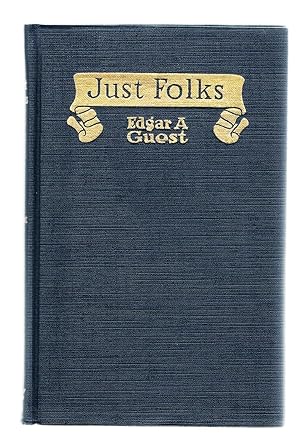The Other Fellow
byThe Other Fellow begins by pointing a subtle mirror at the reader, revealing the quiet habit of believing others have it easier, happier, or more successful. We imagine someone else’s path as smoother, their burdens lighter, and their days filled with victories we rarely experience. It’s an instinct rooted in comparison, often sparked by small disappointments in our own lives. Each missed opportunity makes another’s win seem bigger. Every struggle exaggerates the ease we think others enjoy. This perception grows until it shapes how we see the world—not through truth, but through assumed lack. We don’t just envy what they have. We start to question why we don’t have it too.
As the poem moves forward, it sharpens its insight. The envy we feel is shown to be mutual, cyclical, and often baseless. That man we envy might be looking at us with the same longing, unaware of our battles just as we ignore his. He sees our life from the outside, just as we see his. In his eyes, we’re the ones with the blessings—the ones who smile a little easier or seem to move through hardship with less weight. It’s a reminder that perception often masks reality. Everyone carries something heavy, but we rarely notice what’s hidden beneath another’s ease. The envy we give often returns to us from those who envy back.
This realization turns the poem’s tone from frustration to empathy. Instead of chasing someone else’s imagined comfort, we are invited to see our own lives with more grace. What we thought was lack may actually be abundance, if seen from another view. The grass we believed greener might only look that way because we haven’t taken time to water our own. The poem ends not with resignation, but with clarity. It suggests that no one truly escapes struggle, and everyone wears a mask now and then. And when we begin to see the whole picture, not just the highlight reel, we soften. Compassion replaces envy, and contentment begins to grow.
In The Open Fire, the attention shifts inward. Where The Other Fellow explores outward comparisons, this piece focuses on the warmth found in personal reflection. The fire becomes more than heat—it’s a flickering doorway into memories that comfort and restore. The narrator gazes into the flames and sees pieces of life that once were: carefree laughter, childhood games, and rooms filled with people who may now be distant or gone. The fire doesn’t bring them back physically, but it lets their joy live again for a moment. In its glow, time blurs. Sorrow softens. And memory becomes a place to rest.
This kind of reflection is not an escape—it’s a return to self. In the light of the fire, age does not disappear, but it becomes less sharp. The burdens carried through the years are still present, but they seem lighter as memories offer contrast. We remember a time when love was fresh, when friendships were simple, and when happiness was made from very little. These images don’t erase the present, but they remind us it was shaped by something beautiful. The warmth from the grate reaches deeper than the skin. It reaches the heart. And in that space, even loneliness has a softer sound.
Together, these two poems offer a rich, human truth. We often spend our days comparing our lives to others, feeling we fall short in some invisible race. Yet the very people we envy may wish for what we have. At the same time, we forget the richness of our own past, the joy that still lives in memory, waiting to be felt again. The Other Fellow teaches us to stop measuring happiness against someone else’s yardstick. The Open Fire reminds us that peace often sits right beside us, if we’re willing to be still. Both invite us to look more gently at life—not by wishing for another’s story, but by remembering the beauty in our own.

